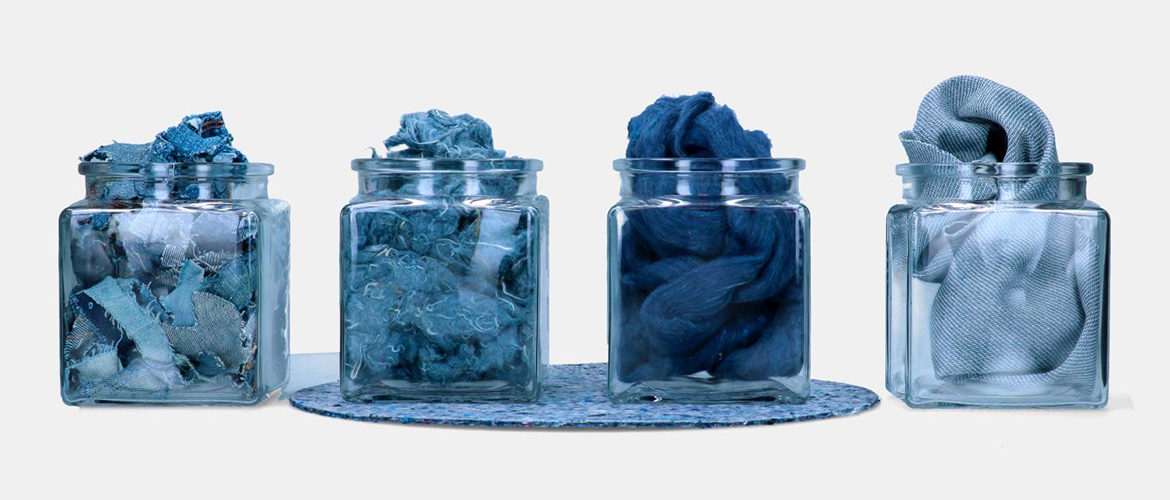Reuse of textile waste:
Through our partnership with We Make Hope (WMH), an organisation with nearly 40 years of experience supporting sustainable development cooperation, we collect, sort and transform unused textiles into circular and recycled accessories. This approach ensures the smallest possible ecological footprint and is in line with the UN's Sustainable Development Goals (SDGs).
At 'be the fibre', we are committed to reducing the impact of the textile industry on the environment. This is exactly why we embrace circularity. We see the significant footprint of the textile industry and commit to actively working to reduce textile waste and carbon emissions.

Explore reuse options:
Collected textiles are carefully sorted at a sheltered worksplace in Flanders. The best clothes are resold through our second-hand shops and certified partners. In addition, some of our sorted textiles also get a destination at the social projects of one of our foreign partner organisations. The remaining unused textiles are recycled by our trusted partners.
Our design and production are local. The fabric is made from a mechanically recycled mix of your old clothes, polyester and recycled plastic bottles. The PVC on our bags comes from a tarpaulin company whose cutting waste we reuse. The shoulder straps are woven from recycled jeans.
Use repurposed materials:
By fiberising non-reusable garments and recycling existing materials, we give them a new purpose and prevent them from ending up in landfills or being incinerated.
We are now actively looking for innovative ways to reuse recyclable textiles, e.g. for padding (vehicle industry), insulation and interior design. Our preference is to upcycle the textile waste, as this exploits the full value of the garment, yet downcycling options cannot be ruled out either.
'be the fibre' supply chain:
Our supply chain operates on the triple A principle: Agility, Alignment, and Adaptability.
We anticipate and react to changes in demand and market supply, and work closely with suppliers and customers to improve the effectiveness and efficiency of textile processing and reinjection into the market. Moreover, we adapt to long-term changes in the market by taking advantage, to the extent possible, of technological advances in mechanical recycling.
Join us and create impact yourself too: If you are interested in our project, contact us. Unite for fashion impact. 'Be the change. Be the fibre.'